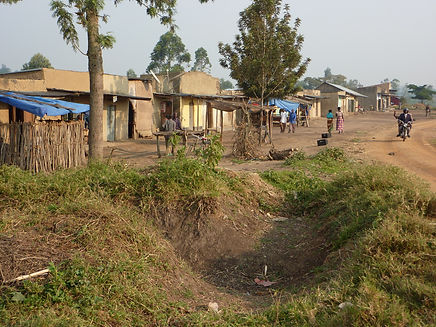UGANDA

HEALTH AND WELL-BEING IN SOUTHWESTERN UGANDA
Our activities in Uganda stem from the simple promise that we will do everything in our power to achieve long-lasting and high-quality healthcare for our friends in need.
In Uganda, we work hand-in-hand with the national, district, and local governments to strengthen public sector health services. Our work in Uganda began in the neighboring communities of Kashongi and Kitura in the southwestern region of the country in 2009. After a series of needs assessments in the community, we began providing antenatal care to pregnant women in the community. Since then, our programs have continually expanded, ranging from maternal health to water, sanitation, and hygiene.
Through our initial needs assessment work, we learned from community members about many of the most important challenges in Kashongi and Kitura – many of them related to disease and virtually all of them rooted in poverty. Problems include issues such as transportation to health centers, access to safe water, drug shortages, health worker shortages, malaria, HIV/AIDS, agricultural productivity, and income generation.
In our efforts dedicated to maternal health, we have witnessed firsthand the devastation of many of these problems. When we began our work, a majority of women in our partner communities were delivering their babies at home. Many families were forced to sell land or livestock simply to be able to deliver their babies in a health center.
By getting to know a number of people throughout Kashongi and Kitura, we were able to build a team of truly stellar community members who we began working with to address these problems. Since then, we have trained numerous local residents to meet basic health needs in their communities.
Moving forward, we aim to continue and deepen our maternal and neonatal health services provided by the Omukazi Namagara Program. Through this initiative, we work day in and day out to strengthen service provision at local health centers. We also work with community health workers to educate community members about maternal and neonatal health and to consistently monitor the health of pregnant women, mothers, and newborns. Looking further ahead, we plan to continually add more components to our efforts and to build a comprehensive healthcare system in southwestern Uganda.
We also plan to start programs to support other basic services, such as education and access to financial resources. These initiatives will help alleviate the social and economic problems that are at the root of ill health.



